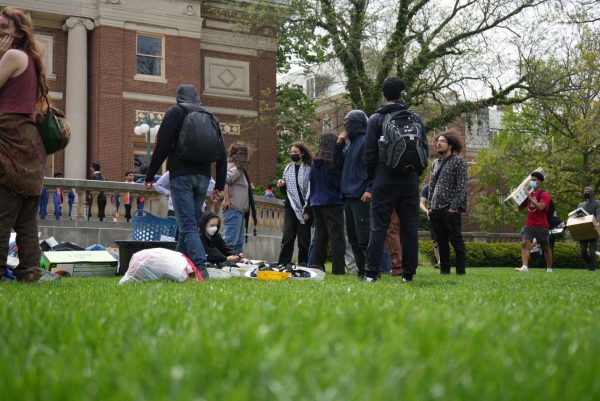EPA rules could pose problems for Illinois workers
June 9, 2014
In economics, there is a term called “structural unemployement.” It means unemployment that’s been caused by structural changes in the economy — like changes in technology, competition from abroad, or changes in regulations and policy.
But over the next few years, this textbook terminology is going to have a real effect on a large group of people in central and southern Illinois — coal miners.
Last week, the Environmental Protection Agency released its proposed rules for existing coal-fired power plants: they must decrease their emissions 30 percent by 2030. The intention behind the rules is to slow climate change, spur innovation in the green sector and create jobs.
While these goals are admirable and seem to have great intention behind them, we believe that the immediate effects of these rules would have many negative effects on Illinois workers. Going forward, Illinois lawmakers have to be mindful of these effects and provide for equal energy employment opportunities for the soon-to-be unemployed.
After the agency finalizes its proposal in about a year, states will have a year to design their own implementation plans.
Get The Daily Illini in your inbox!
But with rules like this, structural unemployment is unavoidable — especially in Illinois, where one of the largest coal basins in the country supplied eight percent of U.S. coal production in 2008, according to F. Freme’s Coal Review.
Leonard Hopkins, fuel and compliance manager for the Southern Illinois Power Cooperative, said in a story for the Benton Evening News that industry analysts project between 224,000 and 250,000 jobs could be lost nationwide due to these regulations.
While saving the environment is exceptionally necessary, the human consequences of these changes can’t be ignored. This new policy, if passed as-is, will throw away the livelihoods of at least 224,000. Not all of them can go into work as a mechanic for a solar farm or an operator for a fracking site right after losing their job — unless steps are taken to minimize the harm.
“We’re doing everything we can to keep the coal mines open and every time we turn around the federal government’s trying to shut them down,” said State Rep. John Bradley, D-Marion, in the same article.
Climate change is one of the most pressing issues of our time, but even so, when Illinois goes forward with its implementation plan, it has to be mindful of the lost jobs and economic impact the rules will have in Southern Illinois.
Whatever implementation plan the state comes up with, it needs an emphasis on Southern Illinois so that when green technologies come into the state, they can absorb some of the job loss in that part of the state.






